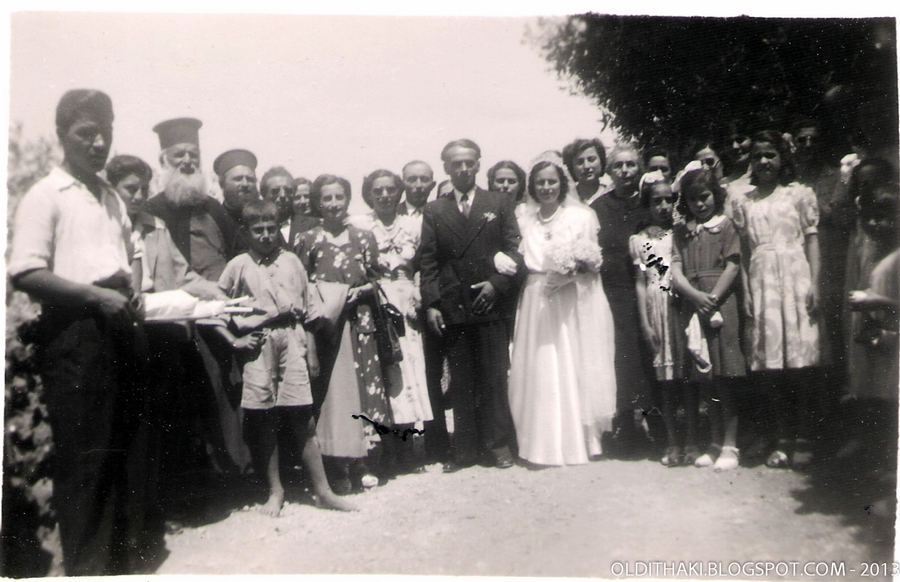The wedding
Written by Ithacorama Portal on 26.10.2013
Marriage was an important turning point in everyone’s life.
In Ithaca people got married only once and the couple had to live together until their life’s end since divorce was something unknown at that time. As in the other areas of Greece the wedding feasts used to last for several days with eating, drinking, singing and dancing, and after the ceremony relatives and friends accompanied the bride and her dowry to the new home. The songs sung were about the pretty couple and their deep, true love.
The bridegroom with his family accompanied by violins and lute would go to the best man’s house who would join them and altogether they would go to the home of the bride. The ceremony would take place either at the bride’s house or the church with a celebration always following with rich meals, a variety of songs and local or European dances, all lasting for four continuous days.
The bridal bed was prepared by unmarried girls as they sang wedding songs, also awaiting the newlyweds were practical jokes set up by friends, one of the more popular ones was to hang animal bells under the mattress to interrupt the “mystery” of the first night. Three days prior to the wedding, relatives and friends would participate in the custom of making the mattress. They would stuff the mattress case with sheeps- wool and when finished they would “silver” the bed by leaving various silver coins on it. Afterwards a young boy, with both parents living, would roll on the mattress; this was a symbolic gesture for the good health of the couple and that they give birth to male children.
A few days preceding the wedding, the bride groom and relatives would visit the bride’s house with musical instruments and songs, to receive the dowry, usually linen and household objects, completed after years of weaving and sewing. Placed in baskets, the dowry was carried on the heads of young girls to the groom’s house where a celebration would take place. Also a compulsory custom was that a small object had to be “stolen” from the bride’s parents’ house on behalf of the groom and the “booty” brought to him.
-
Reference:

-Ιθάκη Τότε και Τώρα- Εκδσεις Σπύρος Δενδρινός, Σπύρος Χ. Δενδρινός - Αλέκος Φ. Καλλίνικος
-Ιστορικά και Λαογραφικά Ανάλεκτα της Ιθάκης - Ανδρέα Λ. Αναγνωστάτου
-Θιάκά Μοιρολόγια (Ημερολόγιο Ιθάκης, 1929)


